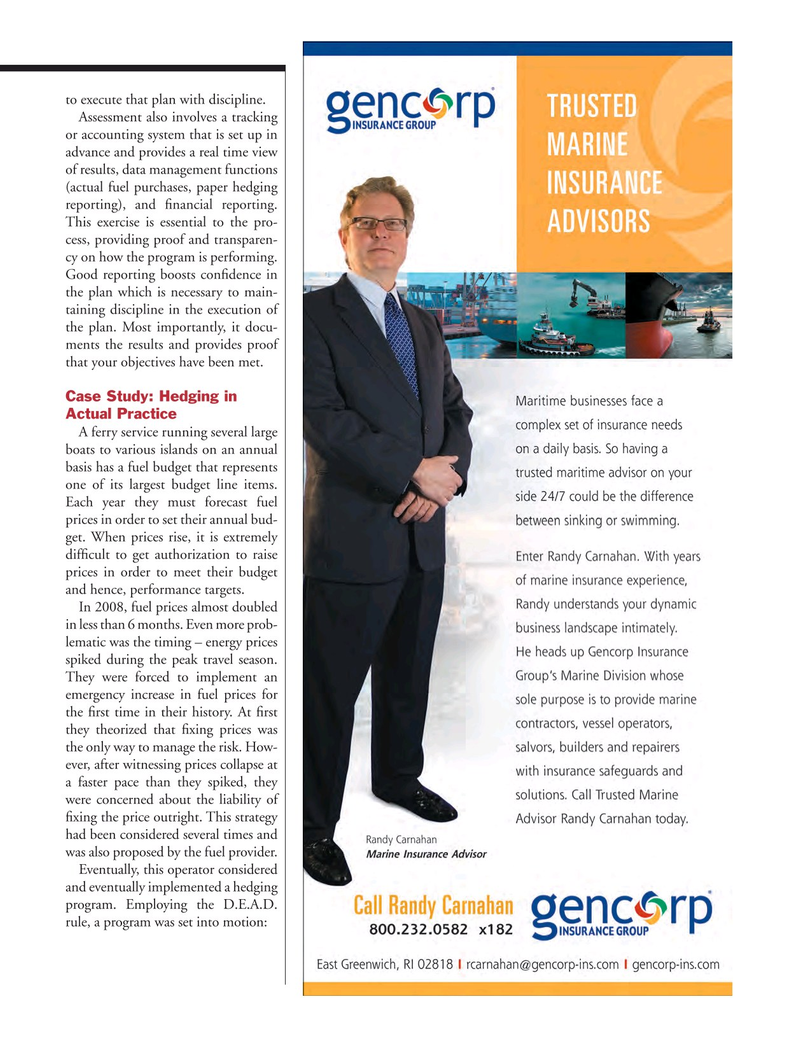
Page 27: of Marine News Magazine (March 2015)
Fleet Optimization
Read this page in Pdf, Flash or Html5 edition of March 2015 Marine News Magazine
to execute that plan with discipline.
Assessment also involves a tracking or accounting system that is set up in advance and provides a real time view of results, data management functions (actual fuel purchases, paper hedging reporting), and ? nancial reporting.
This exercise is essential to the pro- cess, providing proof and transparen- cy on how the program is performing.
Good reporting boosts con? dence in the plan which is necessary to main- taining discipline in the execution of the plan. Most importantly, it docu- ments the results and provides proof that your objectives have been met.
Case Study: Hedging in
Actual Practice
A ferry service running several large boats to various islands on an annual basis has a fuel budget that represents one of its largest budget line items.
Each year they must forecast fuel prices in order to set their annual bud- get. When prices rise, it is extremely dif? cult to get authorization to raise prices in order to meet their budget and hence, performance targets.
In 2008, fuel prices almost doubled in less than 6 months. Even more prob- lematic was the timing – energy prices spiked during the peak travel season.
They were forced to implement an emergency increase in fuel prices for the ? rst time in their history. At ? rst they theorized that ? xing prices was the only way to manage the risk. How- ever, after witnessing prices collapse at a faster pace than they spiked, they were concerned about the liability of ? xing the price outright. This strategy had been considered several times and was also proposed by the fuel provider.
Eventually, this operator considered and eventually implemented a hedging program. Employing the D.E.A.D. rule, a program was set into motion:

 26
26

 28
28
